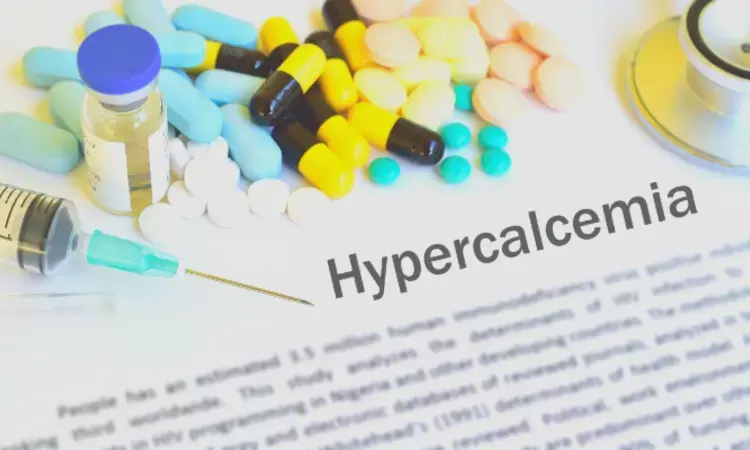- Home
- Medical news & Guidelines
- Anesthesiology
- Cardiology and CTVS
- Critical Care
- Dentistry
- Dermatology
- Diabetes and Endocrinology
- ENT
- Gastroenterology
- Medicine
- Nephrology
- Neurology
- Obstretics-Gynaecology
- Oncology
- Ophthalmology
- Orthopaedics
- Pediatrics-Neonatology
- Psychiatry
- Pulmonology
- Radiology
- Surgery
- Urology
- Laboratory Medicine
- Diet
- Nursing
- Paramedical
- Physiotherapy
- Health news
- Fact Check
- Bone Health Fact Check
- Brain Health Fact Check
- Cancer Related Fact Check
- Child Care Fact Check
- Dental and oral health fact check
- Diabetes and metabolic health fact check
- Diet and Nutrition Fact Check
- Eye and ENT Care Fact Check
- Fitness fact check
- Gut health fact check
- Heart health fact check
- Kidney health fact check
- Medical education fact check
- Men's health fact check
- Respiratory fact check
- Skin and hair care fact check
- Vaccine and Immunization fact check
- Women's health fact check
- AYUSH
- State News
- Andaman and Nicobar Islands
- Andhra Pradesh
- Arunachal Pradesh
- Assam
- Bihar
- Chandigarh
- Chattisgarh
- Dadra and Nagar Haveli
- Daman and Diu
- Delhi
- Goa
- Gujarat
- Haryana
- Himachal Pradesh
- Jammu & Kashmir
- Jharkhand
- Karnataka
- Kerala
- Ladakh
- Lakshadweep
- Madhya Pradesh
- Maharashtra
- Manipur
- Meghalaya
- Mizoram
- Nagaland
- Odisha
- Puducherry
- Punjab
- Rajasthan
- Sikkim
- Tamil Nadu
- Telangana
- Tripura
- Uttar Pradesh
- Uttrakhand
- West Bengal
- Medical Education
- Industry
Rare case of hypercalcemia after vitamin D supplementation in Sarcoidosis patient: A report

Japan: A recent case study described in Medicine has stressed the importance of closely monitoring patients' medications, including over-the-counter supplements, especially in those with granulomatosis disease. The consequent measurements of the levels of 25-OH Vit.D3 and 1,25-(OH)2 Vit.D3 help determine the cause of hypercalcemia.
Significant causes of hypercalcemia are hyperparathyroidism and malignancy, accounting for 90% of the cases. Sarcoidosis and vitamin D supplements intake may also result in hypercalcemia, although if only one is involved, the occurrence rate is low.
The case described by Kotaro Haruhara, The Jikei University School of Medicine, Tokyo, Japan, and colleagues is of a 62-year-old Japanese man with sarcoidosis who developed hypercalcemia after taking cholecalciferol (vitamin D supplement) for a year. The condition was promptly restored by corticosteroid treatment.
The man presented with hypercalcemia, acute kidney injury, and symptoms of fatigue and appetite loss while being followed up for sarcoidosis.
For several reasons, the authors determined that a combination of cholecalciferol supplementation and sarcoidosis has resulted in hypercalcemia. Firstly, hypercalcemia was noted when this patient was first admitted due to sarcoidosis-related respiratory failure several years earlier, which the authors presumed that's the highest sarcoidosis disease activity. Secondly, low serum levels of 25-OH Vit.D3 and high 1,25-(OH)2 Vit.D3 levels were seen despite cholecalciferol supplementation for a year, indicating that overexpression of 1-α-hydroxylase caused by sarcoidosis fastened the conversion from 25-OH Vit.D3 to 1,25-(OH)2 Vit.D3.
The hypercalcemia improved promptly after initiating corticosteroid treatment after initial resistance to preservative management. After corticosteroid treatment, hypercalcemia and acute kidney injury were normalized.
"We experienced a case of acute kidney injury and hypercalcemia in a sarcoidosis patient who had taken an over-the-counter cholecalciferol supplement for over one year," the researchers wrote. "The concomitant measurement of the levels of 25-OH Vit.D3 and 1,25-(OH)2 Vit.D3 played a critical role in the diagnosis of the case."
"While resistant to standard treatments against hypercalcemia, such as intravenous fluid therapy, calcitonin, and furosemide, it was quite sensitive to corticosteroid treatment."
"Our case indicates that physicians should keep a close watch on patient's medications, including over-the-counter supplements, particularly in those with granulomatous diseases."
"There is a need for regular kidney function and serum calcium level measurements to detect abnormal calcium metabolism in patients with granulomatous diseases. Furthermore, the simultaneous measurement of 25-OH Vit.D3 and 1,25-(OH)2 Vit.D3 levels is useful for determining the hypercalcemia cause."
Reference:
Mio, Kimito MDa; Haruhara, Kotaro MD, PhDa,*; Shimizu, Akihiro MD, PhDa; Oshiro, Kentaro MDa; Kawai, Rena MDa; Ikeda, Masato MD, PhDa; Yokoo, Takashi MD, PhDa. Hypercalcemia worsened after vitamin D supplementation in a sarcoidosis patient: A case report. Medicine: October 07, 2022 - Volume 101 - Issue 40 - p e30883 doi: 10.1097/MD.0000000000030883
Dr Kamal Kant Kohli-MBBS, DTCD- a chest specialist with more than 30 years of practice and a flair for writing clinical articles, Dr Kamal Kant Kohli joined Medical Dialogues as a Chief Editor of Medical News. Besides writing articles, as an editor, he proofreads and verifies all the medical content published on Medical Dialogues including those coming from journals, studies,medical conferences,guidelines etc. Email: drkohli@medicaldialogues.in. Contact no. 011-43720751


